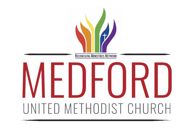
34 Peter said, “I really am learning that God doesn’t show partiality to one group of people over another. 35 Rather, in every nation, whoever worships him and does what is right is acceptable to him. 36 This is the message of peace he sent to the Israelites by proclaiming the good news through Jesus Christ: He is Lord of all! 37 You know what happened throughout Judea, beginning in Galilee after the baptism John preached. 38 You know about Jesus of Nazareth, whom God anointed with the Holy Spirit and endowed with power. Jesus traveled around doing good and healing everyone oppressed by the devil because God was with him. 39 We are witnesses of everything he did, both in Judea and in Jerusalem. They killed him by hanging him on a tree, 40 but God raised him up on the third day and allowed him to be seen, 41 not by everyone but by us. We are witnesses whom God chose beforehand, who ate and drank with him after God raised him from the dead. 42 He commanded us to preach to the people and to testify that he is the one whom God appointed as judge of the living and the dead. 43 All the prophets testify about him that everyone who believes in him receives forgiveness of sins through his name.”
Reflection
While reading today’s scripture, I was reminded of the hymn, I Love to Tell the Story. This hymn, written about 1866-69, opens with these words:
I love to tell the story, of unseen things above.
Of Jesus and His Glory, of Jesus and His love.
I wonder if Peter would have related to these lyrics, written some 1,800 years after the biblical times of Jesus and the apostles.
Through his testimony, Peter was heard giving the synopsis of the events of Jesus’ life and ministry. Yet, it seems like for Peter, there was much that he did not understand until afterward. Perhaps Peter, more than any other disciple, would eventually become the most dramatic witness to God’s forgiveness.
After missing the point, Peter told Jesus not to speak of his impending death. Later he did not want Jesus to wash his feet and Jesus also predicts his denial by Peter (John 13). Then, even though Peter witnessed the death and resurrection of Jesus, Peter continued to struggle to understand the true depth and breadth of God’s forgiveness.
In fact, earlier in this chapter of Acts, Peter was recorded as seeing and hearing messages from God about the acceptance of the Gentiles, despite his distrust of their rituals and food. So now, Peter is left to tell the story to all kinds of people. Can you imagine it? When confronted by God on multiple occasions, he must have repeatedly known and felt his own screw ups. I can only imagine that through it all, Peter must have felt himself broken and unworthy. Still Peter was chosen to witness about Jesus Christ’s story.
Peter became the disciple who would be accredited as the rock on which the church was built. Peter would preach and witness to Gentiles and Jews and live to tell the story. Most importantly, Peter would be a human example of God’s forgiveness. Peter would have loved to tell the story because he was a living example Of Jesus and His love.
By Barbara Carlson
For Pondering & Prayer
I love to read, hear and tell God’s story, especially from Peter’s point of view. He wanted so much to please God and to be a disciple of Christ as an example for all. Yet, so many times he fell short. Peter denied his Savior and missed the point until long after Jesus’ human life had ended. How often might we also know his confused path to discipleship? How often might we also need to hear the story of Jesus and His love?
Prayer: Loving God, we long to hear and tell the story of your son, Jesus. We want so much to follow pathways that are pleasing to you. Yet, like Peter, we often fall short in understanding your love and forgiveness. Lord, may we grow to hear and know your story. May we love to tell that story again and again, so that others may know the goodness of your love. Amen.
